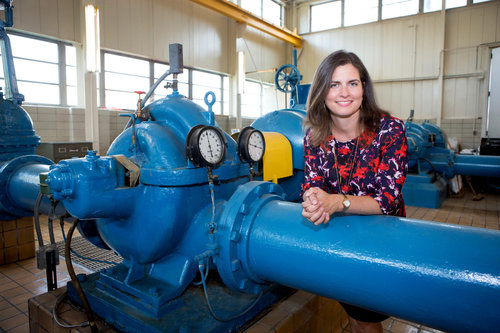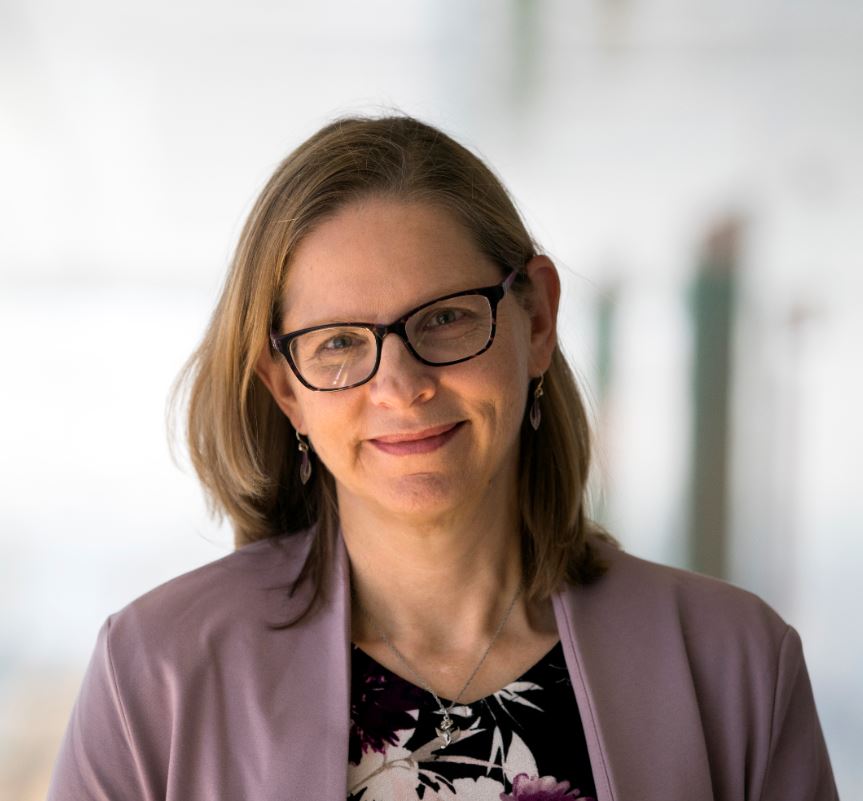Improving Water Quality in Schools and Childcare Facilities During COVID-19
12:00 pm US Eastern Time
Slides & Resources
Slides
Nancy Love: Drinking Water and School Buildings Setting the Stage.
Elin Betanzo: Restoring Water Quality When Re-opening Schools and Childcare Facilities During COVID-19.
Resources
As school buildings begin to open up after the extended shutdown due to the COVID-19 pandemic, employees and families are dealing with unprecedented questions about building safety. Water in school buildings is critical to public health protection through hand washing and drinking water. During the shutdown, limited water use can increase the risk of microbial contaminants and corrosion in school building plumbing.
Nancy Love, PhD, opened with a discussion of the known and unknown science around water quality issues after the extended COVID-19 shutdown in schools and childcare facilities around the country. She presented her work in environmental surveillance of L. pneumophila, highlighting risk management strategies to provide safe public water supplies. Dr. Love also discussed point-of-use (PoU) treatment devices at the tap including faucet-mounted activated carbon block (ACB)-PoU filters and their effectiveness at reducing lead and copper, select organics such as disinfection byproducts, PFAS, and chlorine or chloramine disinfection residuals. She highlighted the potential for significant microbial growth on these devices and strategies that can be used to enhance filter performance and water quality.
Following this presentation, Elin Betanzo, MS, provided an action oriented practical look at school water quality after this extended shutdown. She covered the contaminants to look out for (legionella and lead, among others), risk factors, and strategies schools can use to reduce the risk of experiencing water quality issues as students return to school buildings. She also provided a set of questions that parents can ask their schools to ensure that appropriate steps are being taken to address water quality in schools before and during the return of students.
Featured Speakers
 Elin Warn Betanzo, MS, is the founder of Safe Water Engineering LLC, a small consulting firm working to improve access to safe drinking water through engineering and policy consulting. Elin 's work focuses on raising awareness of lead in drinking water, assisting water utilities with Safe Drinking Water Act compliance, and improving drinking water regulations and legislation at the state and federal levels. Elin provides science and policy expertise addressing water quality issues for water utilities, schools, and homes. Elin has nearly 20 years of drinking water experience, including work at the US Environmental Protection Agency, the Washington Suburban Sanitary Commission, and the Northeast-Midwest Institute. She is a Professional Engineer (Michigan, Virginia, Maryland) and a certified water operator in Maryland.
Elin Warn Betanzo, MS, is the founder of Safe Water Engineering LLC, a small consulting firm working to improve access to safe drinking water through engineering and policy consulting. Elin 's work focuses on raising awareness of lead in drinking water, assisting water utilities with Safe Drinking Water Act compliance, and improving drinking water regulations and legislation at the state and federal levels. Elin provides science and policy expertise addressing water quality issues for water utilities, schools, and homes. Elin has nearly 20 years of drinking water experience, including work at the US Environmental Protection Agency, the Washington Suburban Sanitary Commission, and the Northeast-Midwest Institute. She is a Professional Engineer (Michigan, Virginia, Maryland) and a certified water operator in Maryland.
 Nancy G. Love, PhD, is the Borchardt and Glysson Collegiate Professor of Civil and Environmental Engineering at the University Michigan, and an adjunct Professor at the Institute of Biotechnology at Addis Ababa University. She has advised over 70 graduate students and post-doctoral research associates. Her research focuses at the interface of water, infrastructure and public health. She and her students evaluate the fate, detection and treatment of chemical and biological contaminants in water systems, and advance resource recovery technologies. She has co-authored: over 100 peer reviewed papers, chapters and reports; over 250 conference presentations; and the 2011 textbook Biological Wastewater Treatment, 3rdEdition by Grady, Daigger, Love and Filipe. Dr. Love has held leadership positions in multiple organizations, including with the Water Environment Federation (WEF), the International Water Association (IWA), and the Association of Environmental Engineering and Science Professors (AEESP), and is a Fellow of all three organizations. Dr. Love is a licensed professional engineer (P.E.) in the state of Michigan and a Board Certified Environmental Engineer (BCEE). She has been selected as the 2019 Kappe Lecturer for the American Academy of Environmental Engineers and Scientists.
Nancy G. Love, PhD, is the Borchardt and Glysson Collegiate Professor of Civil and Environmental Engineering at the University Michigan, and an adjunct Professor at the Institute of Biotechnology at Addis Ababa University. She has advised over 70 graduate students and post-doctoral research associates. Her research focuses at the interface of water, infrastructure and public health. She and her students evaluate the fate, detection and treatment of chemical and biological contaminants in water systems, and advance resource recovery technologies. She has co-authored: over 100 peer reviewed papers, chapters and reports; over 250 conference presentations; and the 2011 textbook Biological Wastewater Treatment, 3rdEdition by Grady, Daigger, Love and Filipe. Dr. Love has held leadership positions in multiple organizations, including with the Water Environment Federation (WEF), the International Water Association (IWA), and the Association of Environmental Engineering and Science Professors (AEESP), and is a Fellow of all three organizations. Dr. Love is a licensed professional engineer (P.E.) in the state of Michigan and a Board Certified Environmental Engineer (BCEE). She has been selected as the 2019 Kappe Lecturer for the American Academy of Environmental Engineers and Scientists.
This webinar was moderated by Karen Wang, PhD, director of CHE. It lasted for 60 minutes and was recorded for our call and webinar archive.


